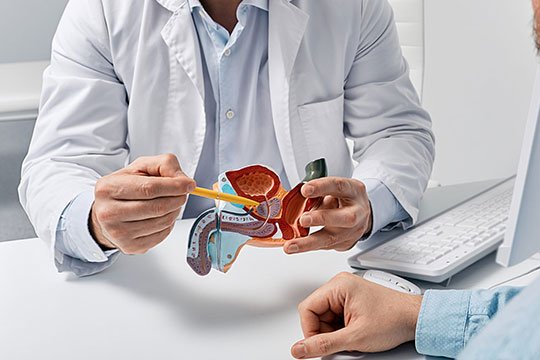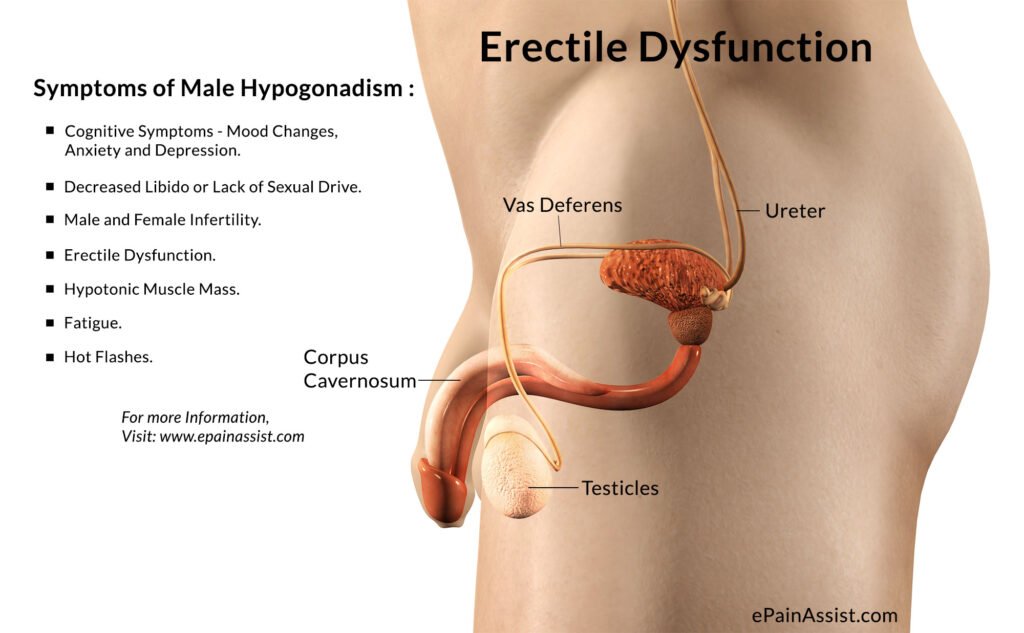Regain Confidence with Expert Erectile Dysfunction Treatment in Turkey
World-class care, advanced solutions, and full support for international patients — all in a private and professional environment.
Our ED Treatment Options
We offer a range of safe, effective, and personalized treatments for erectile dysfunction — from non-invasive therapies to advanced surgical solutions.

Shock Wave Therapy (ESWT)

P-Shot + ESWT Combination

Penile Prosthesis (Implant)

What Is Erectile Dysfunction?
Erectile Dysfunction (ED) is a common condition where a man has difficulty achieving or maintaining an erection suitable for sexual activity. It can be caused by physical, psychological, or lifestyle-related factors. Thankfully, modern treatments offer effective and lasting results — especially when guided by a specialized urologist.
Why Choose Us for ED Treatment in Turkey?
- Experienced Urology Specialist with international patient care experience
- Advanced, Non-Invasive Treatment Options
- Affordable Packages without compromising quality
- English-Speaking Staff & Travel Support
- Private, Discreet, and Confidential Care
Frequently Asked Questions
Getting an accurate diagnosis can be one of the most impactful experiences that you can have. We can help you get there.
Inside the penis are three main channels: two corpora cavernosa, which are responsible for erection, and one corpus spongiosum, which surrounds the urethra and allows urine and semen to pass.
When a person is stimulated by sight, touch, smell, hearing, or even thought, the nervous system sends signals to the blood vessels of the penis. In response, the penile arteries widen, allowing blood to flow into the corpora cavernosa. As these chambers fill, the surrounding veins are compressed, trapping the blood inside and producing an erection.
For a healthy erection, proper function of the vascular system, nerves, and smooth muscles is essential. Damage to any of these components can lead to erectile dysfunction.
Answer:
Erectile dysfunction (ED) can develop from either physical or psychological factors, and in many cases, both play a role. Below is a detailed breakdown of common causes:
Physical Causes
Conditions that impair blood flow, nerve function, or muscle activity in the penis can lead to erectile dysfunction. These include:
Heart disease
Atherosclerosis (blocked blood vessels)
High cholesterol
High blood pressure
Diabetes
Obesity
Metabolic syndrome (a cluster of conditions such as high blood pressure, high blood sugar, excess body fat around the waist, and abnormal cholesterol levels)
Parkinson’s disease
Multiple sclerosis
Side effects of certain medications
Smoking or tobacco use
Peyronie’s disease (scar tissue inside the penis)
Alcoholism or substance abuse
Sleep disorders
Prostate cancer or treatments for an enlarged prostate
Pelvic or spinal cord surgery and injuries
Psychological Causes
Mental health and emotional well-being are just as important for sexual function. Psychological issues may directly cause ED or worsen physical factors over time. Common psychological causes include:
Depression
Stress
Relationship conflicts
Performance anxiety
The diagnosis of erectile dysfunction (ED) usually begins with a detailed medical history and physical examination conducted by an andrology specialist. During this evaluation, the doctor reviews possible contributing factors such as psychological issues, medications, underlying medical conditions, and any history of surgery. A thorough genital examination is also performed.
After this initial assessment, laboratory tests may be ordered:
Blood tests to measure cholesterol and blood sugar levels, which help evaluate cardiovascular risk.
Hormone tests (such as testosterone and prolactin) if hormone-related ED is suspected, since treatment may differ depending on hormone balance.
In cases where vascular problems are suspected, a penile Doppler ultrasound may be performed to assess blood flow. For cases linked to psychological causes, referral to a sexual therapist can be beneficial.
It is also important to note that men over the age of 40 with ED face a higher risk of heart attack within the next five years. For this reason, a comprehensive cardiovascular evaluation is recommended.
Yes, in many cases erectile dysfunction (ED) can be reduced or prevented by avoiding risk factors and adopting healthy lifestyle habits. Helpful strategies include:
Avoiding smoking and limiting alcohol use
Following a Mediterranean-style diet
Managing chronic conditions such as diabetes, high blood pressure, and high cholesterol
Reviewing and, if necessary, adjusting medications that may contribute to ED (under medical supervision)
Exercising regularly and maintaining a healthy weight
Reducing stress and supporting mental well-being
Despite these preventive measures, some individuals may still experience erectile difficulties. In such cases, it is important to undergo a thorough evaluation by an andrology specialist and follow the treatment plan recommended by the physician.
The treatment of erectile dysfunction (ED) depends on its underlying cause, and several options are available:
Vascular-related ED: First-line treatments include medications that improve blood vessel dilation and regeneration, as well as shockwave therapy (ESWT). If these are not sufficient, advanced therapies such as PRP (platelet-rich plasma), SVF (stromal vascular fraction), and exosome treatments may be added to support tissue and nerve repair.
Injection therapies: These can provide immediate erections and may be useful when oral or regenerative treatments are ineffective.
Surgical options: For patients who do not respond to other treatments, penile prosthesis (implant) surgery offers a permanent solution to erectile dysfunction.
Venous insufficiency-related ED: In such cases, treatment often combines deep venous ligation surgery, shockwave therapy (ESWT), and stem cell–based approaches (SVF).
Each treatment plan should be tailored to the patient’s condition and determined after a thorough evaluation by a specialist.
For International Patients
We welcome patients from Europe, the Middle East, North America, and beyond. Our clinic offers:
Virtual consultations before your trip
Speak directly with our specialist online to discuss your condition and receive a personalized treatment plan before traveling.
Assistance with travel and accommodation
We help organize your flights, hotel reservations, and clinic transport, making your medical trip stress-free.
Airport pick-up and clinic transportation
Our team will meet you upon arrival and ensure comfortable transportation between your hotel and the clinic.
Multilingual medical staff
Our English-speaking team ensures clear communication and personalized care throughout your visit.
Post-treatment follow-up online
After your return home, we continue to support your recovery with scheduled online check-ins and follow-ups.
Visa and medical document support
We can provide official documentation or letters to assist with your visa application or medical travel requirements.
